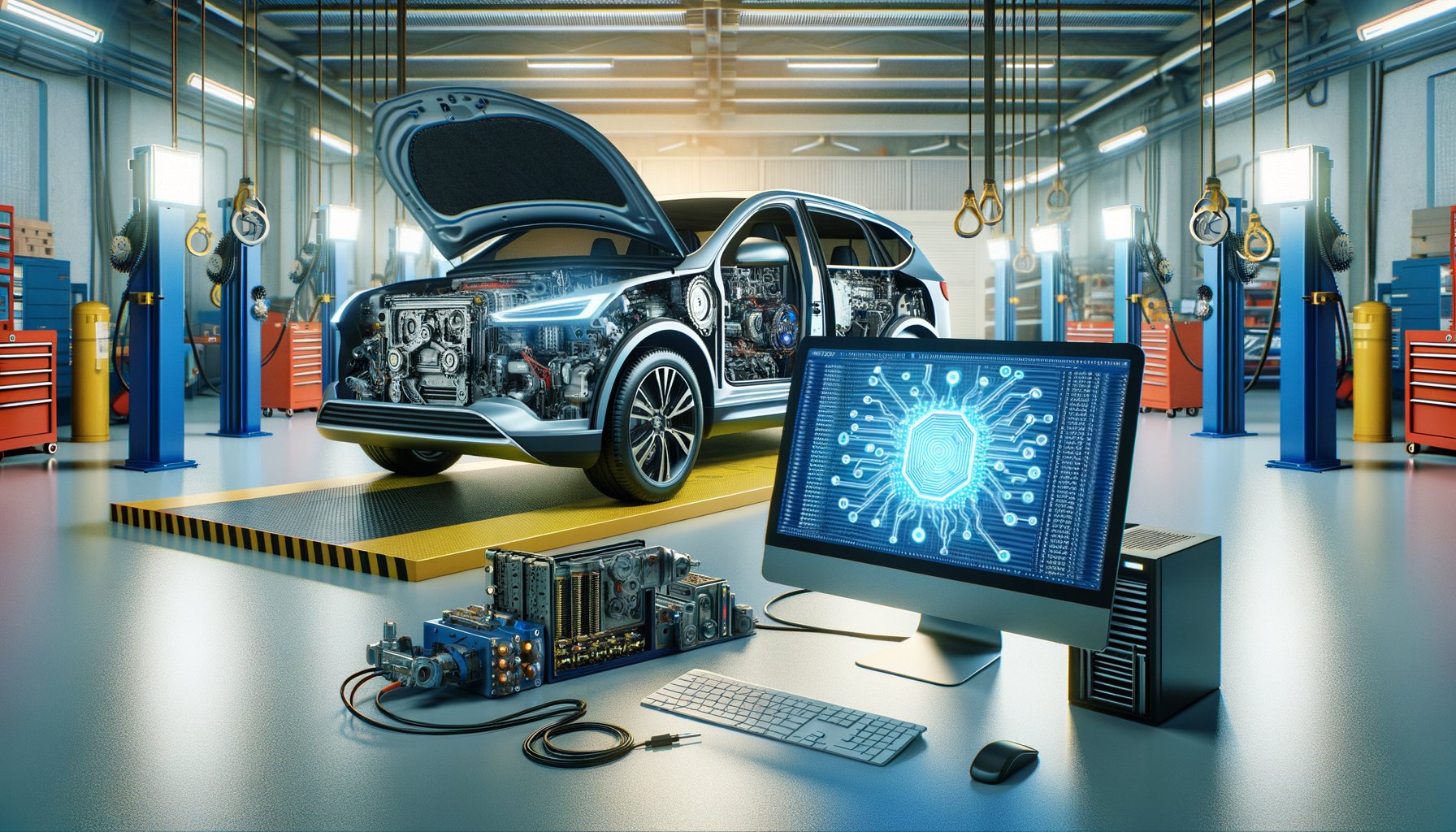Physical Address
304 North Cardinal St.
Dorchester Center, MA 02124
Physical Address
304 North Cardinal St.
Dorchester Center, MA 02124

As the world becomes increasingly digital, the automotive industry is not left out. One of the most significant advancements in this sector is the integration of machine learning into vehicle maintenance. This technology has revolutionised how we maintain our cars, making it more efficient and effective than ever before.
Before delving into how machine learning impacts vehicle maintenance, it’s essential to understand what it entails. Machine learning is a subset of artificial intelligence (AI) that enables computers to learn from data and make decisions or predictions without being explicitly programmed. It uses algorithms to analyse vast amounts of data, identify patterns, and make predictions based on these patterns.
The application of machine learning in vehicle maintenance comes with numerous benefits. From predicting component failure to improving fuel efficiency, machine learning aids in various aspects that enhance car performance and longevity.
One of the primary ways machine learning is utilised in auto maintenance is through predictive maintenance. This approach uses data collected from various sensors installed in the vehicle to predict potential mechanical issues before they occur. By analysing this data, machine learning algorithms can identify patterns and anomalies that may indicate impending component failure.
This predictive capability allows for proactive maintenance, which can prevent costly repairs and extend a vehicle’s lifespan. For instance, if an algorithm predicts that a specific part will fail soon based on its current state and past performance data, you can replace or repair it ahead of time, avoiding breakdowns or severe damage.
Besides predictive maintenance, machine learning also plays a crucial role in optimising fuel efficiency. Through real-time analysis of driving habits and environmental conditions, machine learning algorithms can suggest optimal driving strategies for fuel conservation. This use of machine learning not only reduces fuel consumption but also minimises carbon emissions, contributing to environmental sustainability.
Machine learning is also transforming inventory management within the automotive industry. It helps predict the demand for specific parts based on historical data and current market trends. This predictive ability enables suppliers and manufacturers to manage their inventory efficiently, reducing storage costs and ensuring that parts are available when needed.
While the current applications of machine learning in vehicle maintenance are impressive, the future promises even more exciting possibilities. For instance, with advancements in self-driving technology, we can expect cars to diagnose themselves and schedule their maintenance appointments autonomously.
Moreover, as connected car technology continues to evolve, vehicles will be able to communicate with each other and share information about road conditions or mechanical issues. This inter-vehicle communication could enable a fleet of cars to learn from one another’s experiences, further enhancing predictive maintenance capabilities.
In addition, as more data becomes available and machine learning algorithms become more sophisticated, the accuracy of predictions will likely improve. This enhancement will result in even better preventive maintenance strategies and more efficient operations within the automotive industry.
The integration of machine learning into vehicle maintenance is undoubtedly a game-changer. Its ability to predict potential issues before they occur allows for proactive care that saves time and money while extending a vehicle’s lifespan. Furthermore, its role in optimising fuel efficiency contributes significantly towards environmental sustainability.
As technology continues to advance at an unprecedented rate, it’s clear that machine learning will play an increasingly crucial role in vehicle maintenance. Whether you’re a car owner looking for ways to keep your vehicle running smoothly or an auto manufacturer seeking innovative solutions for improved efficiency and performance, machine learning offers a wealth of opportunities.